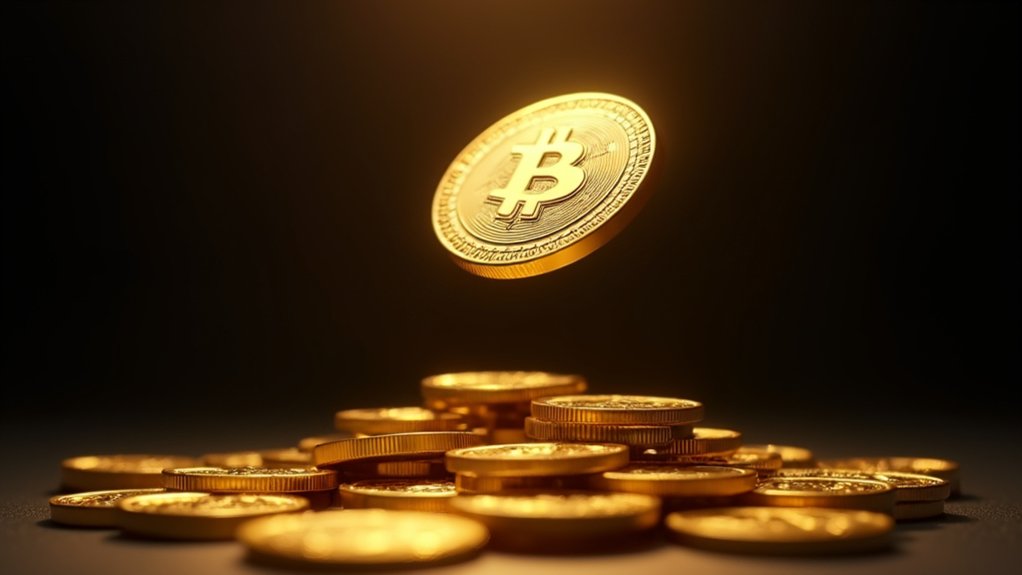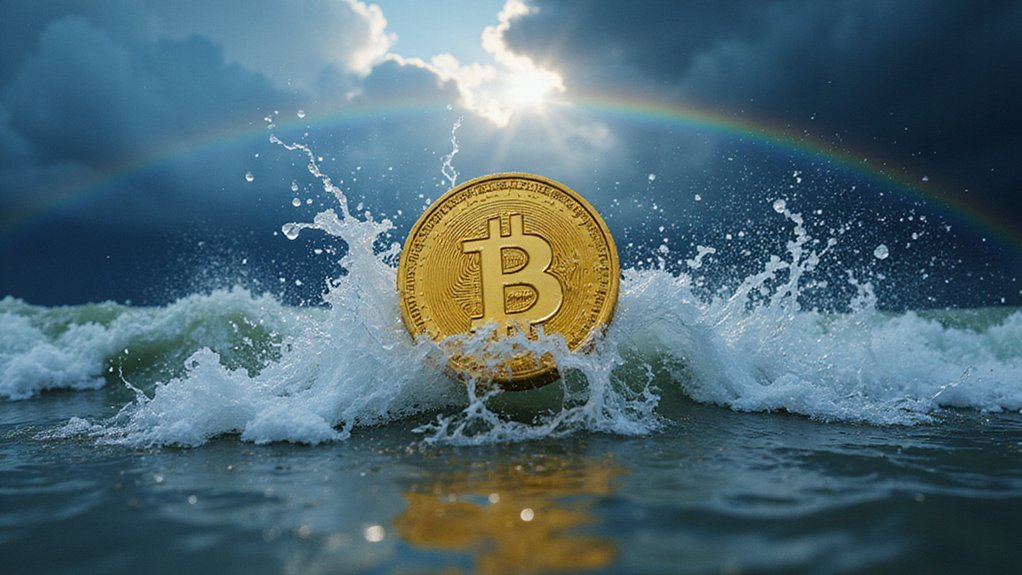How does a family known for gold-plated fixtures and real estate empires pivot to hawking digital tokens with no inherent utility mere days before assuming the highest office in the land? The Trump memecoin launch—strategically timed just before inauguration—offers a masterclass in monetizing political capital through cryptocurrency’s regulatory gray zones.
The mechanics reveal breathtaking audacity: Trump-affiliated businesses retain 80% of the billion-token supply alongside a Delaware-registered entity, creating a structure that would make venture capitalists weep with envy. While memecoins traditionally offer limited functionality beyond speculative trading, the TRUMP token’s creators have extracted $320 million in fees despite subsequent price declines—a proof to the enduring value of brand recognition over technical innovation.
Brand recognition trumps technical merit when political capital transforms into cryptocurrency gold, extracting hundreds of millions through strategic token distribution.
The family’s crypto expansion extends beyond mere memecoins, encompassing stablecoins and various digital projects involving Donald Trump Jr. and Eric Trump. This diversification has contributed 40% of the family’s $2.9 billion wealth increase, demonstrating how cryptocurrency investments can reshape traditional business portfolios. Trump Media & Technology Group’s ambitious $2.5 billion bitcoin acquisition plan further illustrates this strategic pivot toward digital assets. The heightened interest reflects broader institutional adoption trends as cryptocurrencies gain mainstream acceptance across traditional business sectors.
Yet the timing raises profound questions about conflicts of interest that would challenge even seasoned ethics attorneys. Watchdog groups and lawmakers have launched investigations while the SEC expresses mounting concerns over memecoin volatility‘s impact on retail investors. The intersection of political power and personal cryptocurrency ventures has effectively stalled bipartisan legislation—an achievement that speaks volumes about crypto’s political influence. Trump has issued executive orders for crypto deregulation during his second term, further cementing the administration’s commitment to reducing regulatory barriers.
The broader market implications extend beyond family finances. Trump’s endorsement has catalyzed bullish cryptocurrency trends and institutional adoption, transforming presidential political capital into market-moving force. However, this lightly regulated landscape poses significant challenges for oversight bodies attempting to navigate unprecedented ethical terrain. A private dinner hosted at Trump’s golf club rewarded the top 220 meme coin holders with exclusive attendance for their substantial coin purchases.
The crypto community’s divided reception—oscillating between enthusiasm and criticism—reflects deeper tensions within digital asset markets. When Vice President JD Vance addresses stablecoin legislation while Trump-affiliated businesses earn $43 million from token fees, the boundaries between governance and profit-seeking blur beyond traditional recognition. The memecoin phenomenon therefore represents more than speculative excess; it embodies cryptocurrency’s capacity to transform political influence into quantifiable financial returns.









